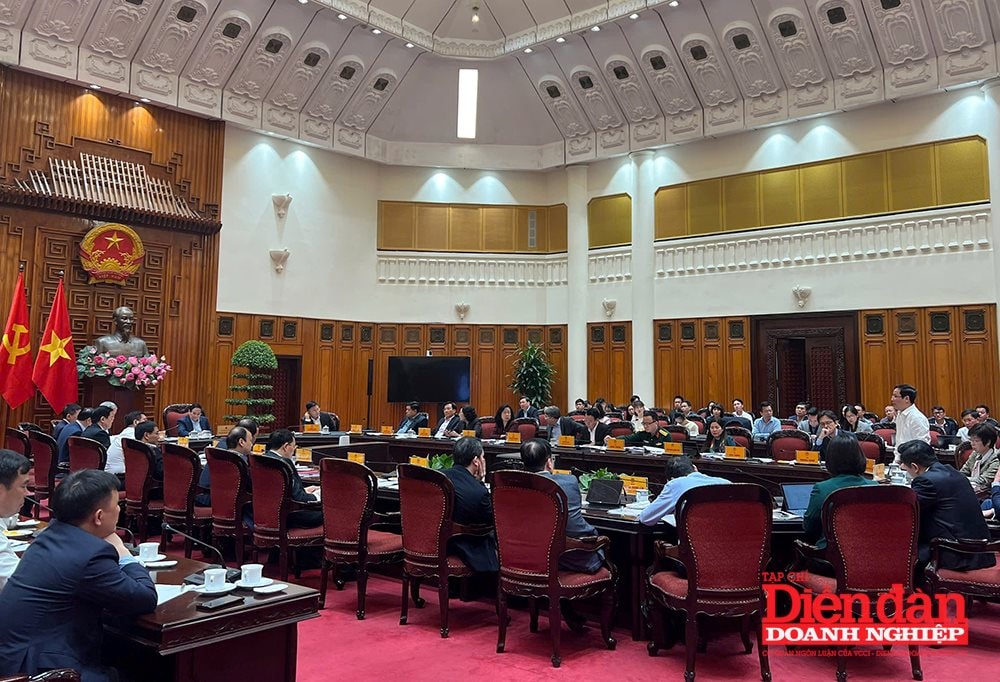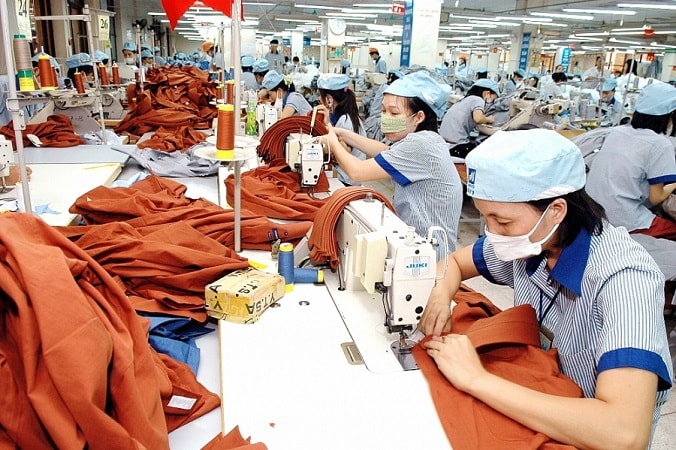VCCI asks the U.S. Administration to delay reciprocal tariffs on Vietnam
As the representative body of the Vietnamese business community, including both domestic and foreign enterprises operating in Vietnam, the Vietnam Chamber of Commerce and Industry (VCCI) has formally requested the U.S. Administration to temporarily postpone the implementation of the proposed 46% reciprocal tariff on Vietnamese goods, set to take effect on April 9.

The Executive Order on Reciprocal Tariffs, signed by U.S. President Donald J. Trump on April 2, 2025, marks a significant shift in trade policy that could seriously affect Vietnam’s export activities to the U.S. market. In response, VCCI recognizes the urgent need for Vietnam to proactively adapt, respond effectively, and reposition itself within global trade dynamics.
In recent days, VCCI has proactively sent letters to the U.S. Department of Commerce, the U.S. Chamber of Commerce, the U.S.-ASEAN Business Council, and regional chambers in Los Angeles and San Francisco, urging support for a delay in the tariff implementation. Many of these organizations have expressed agreement with VCCI’s position.
In a joint letter to the U.S. Secretary of Commerce, VCCI and the American Chamber of Commerce in Hanoi (AmCham) emphasized:
“Although the U.S. trade deficit with Vietnam has widened in recent years, this trend is largely driven by favorable investment conditions in Vietnam and broader shifts in global supply chains aimed at increasing resilience.”
They asserted that the Vietnamese and U.S. economies are “complementary, rather than directly competitive.”
VCCI believes that with goodwill and collaborative effort, negotiations can yield a constructive outcome and strengthen the Vietnam–U.S. economic partnership. Alongside AmCham and the U.S.-ASEAN Business Council, VCCI is urging the U.S. government to engage in dialogue and temporarily suspend the new tariff measures for two to three months to allow space for negotiations.
“Lower tariffs on imports into Vietnam and on goods consumed by American consumers will bring tangible benefits to U.S. companies, the economy, and consumers,” VCCI and AmCham noted. They added that reducing tariffs supports not only exporters to Vietnam but also makes goods more affordable for U.S. households.
Both organizations expressed confidence in Vietnam’s commitment to addressing the bilateral trade imbalance and easing market access for U.S. firms. They also reaffirmed their cooperation with authorities to resolve trade-related challenges, including digital commerce regulations, pharmaceutical imports, intellectual property rights, customs and tax procedures, public procurement, data governance, and more.
“A swift and fair agreement will bring stability for businesses and contribute to a more balanced and mutually beneficial trade relationship,” VCCI stated.
While Vietnam posted a trade surplus of over USD 123 billion with the U.S. in 2024, the nature of the relationship is not one of direct competition. Vietnam plays a vital role in global supply chains, many of which involve U.S. corporations. High tariffs would not only discourage further investment but also hinder the very supply chain restructuring that the Trump administration advocated in its first term.

Vietnam and the U.S. share nearly 300 years of historical engagement, dating back to America’s founding era in 1776. The two countries have overlapping and strategic interests and have been building long-term cooperation across emerging sectors like digital economy, green transition, circular economy, innovation, climate change resilience, supply chain security, and infrastructure development.
Crucially, both nations share a strategic interest in maintaining peace, stability, and prosperity in the region—an essential pillar of their Comprehensive Strategic Partnership and a shared long-term goal.
This year marks the 30th anniversary of the normalization of U.S.–Vietnam relations, a milestone reflecting how far the bilateral partnership has advanced. Over the past three decades, both countries have significantly deepened cooperation across economic, political, and security domains. Today, they stand as comprehensive strategic partners—a powerful testament to the efforts of both peoples in overcoming historical divisions to build a forward-looking, vibrant partnership.
Economic and trade relations have been a cornerstone of this success, serving as a central pillar and key driver of bilateral engagement. Trade between the two nations has increased sixfold over the past decade—from USD 25 billion in 2012 to nearly USD 150 billion in 2024—and more than 330 times since normalization in 1995. By the end of 2024, Vietnam had become the U.S.’s 8th largest trading partner and 4th largest export market within ASEAN.
Vietnam mainly exports raw or low value-added goods to the U.S.—such as agricultural products, seafood, and assembled electronics—while importing high-value products. In areas like education, Vietnam also runs a significant service trade deficit with the U.S. Therefore, imposing tariffs solely based on the size of the trade deficit, without considering the economic structure, may not fully reflect the true dynamics of the bilateral relationship.
The Vietnamese government is taking tangible steps to improve this balance. Just last week, it reduced tariffs on 13 product categories, directly benefiting U.S. exporters. Senior Vietnamese leaders have pledged to further ease imports from the U.S.
Notably, General Secretary To Lam recently held a "very productive" call with President Donald Trump, during which Vietnam expressed willingness to reduce tariffs on U.S. imports to 0% if an agreement can be reached.
Meanwhile, organizations such as VCCI and AmCham are closely working with both governments to address regulatory barriers in key sectors—including digital trade, pharmaceutical imports, IP rights, customs, procurement, data security, and beyond.








